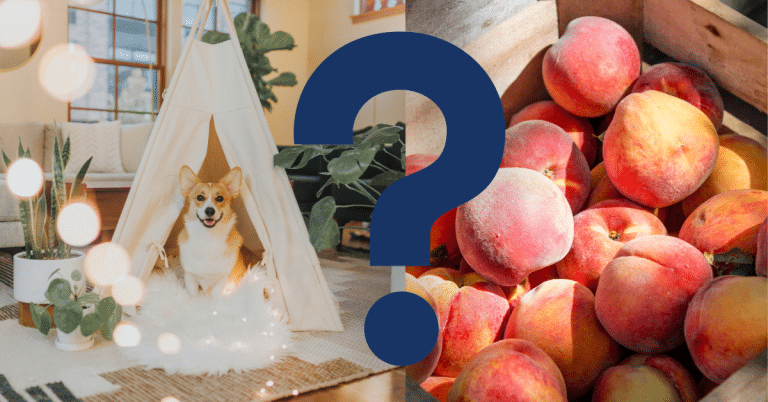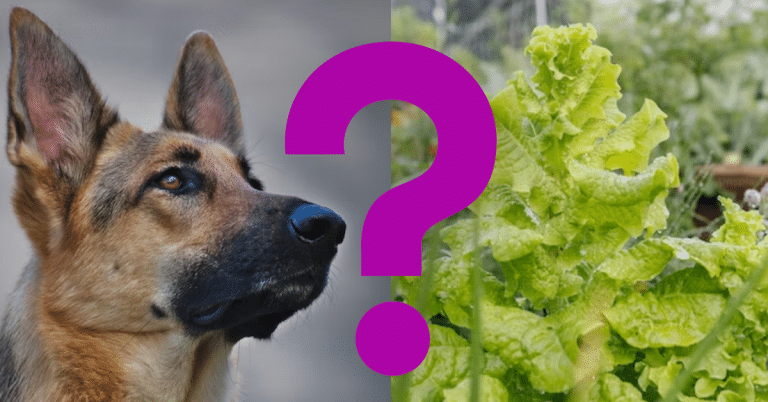Can Dogs Eat Chickpeas? A Vet’s Opinion

Chickpeas are a type of legume. Like lentils are a legume, chickpeas are as well. They are abundant in protein and fibre. The most common type of chickpeas is round and beige in colour. They are of other colours as well, such as black and red, but can you feed chickpeas to your dog?
Yes, your dog can eat chickpeas, and there are numerous benefits to feeding your dog chickpeas. Initially, you must give your dog a small amount of chickpeas to check for allergies. Chickpeas are a great source of fibre and protein for your dogs. Hence, it is vital that you include them in your diet. However, make sure to avoid processed chickpeas and canned chickpeas.
Let’s dive in:
Benefits Of Chickpeas For Dogs
Chickpeas are from the family of lentils and hence are highly nutritious. Minerals and vitamins are abundantly found in chickpeas. Some of which is Magnesium. There are many illnesses with which chickpeas can help.
Chickpeas are great for controlling and regulating blood pressure and preventing heart diseases since they are low in sodium and high in potassium. This can help dilate the blood vessels and prevent blockage. This, in turn, helps lower blood pressure. The fibre in chickpeas also helps the body tackle cholesterol levels. Diabetes is a common ailment among dogs, and this is where chickpeas can come in handy. These complex carbohydrates take time to get digested and release energy after some time, compared to other fast-digesting carbs. This helps with diabetes by preventing sudden glucose spikes and high blood sugar levels symptoms. Chickpeas also have the qualities to battle cancer. They have a substance called selenium, which allows the liver to detoxify cancer-causing agents and help decrease tumour growth as well. Folate and saponins in chickpeas help prevent cancer cells from forming and multiplying. Arthritis is a painful condition in which chickpea consumption can help. Chickpeas help with reducing chronic inflammation. A substance called choline can help with cell membrane structure, and fat absorption, all of the things which will keep arthritis pain in check! Good bowel movements are essential to ensure your dog has no gastric or digestive issues. The fibre in chickpeas helps with the regulation of bowel movements to avoid constipation. The health of the anal gland also depends on stool’s correct formation and passing! Dogs are notorious eaters and hence can gain weight quickly. Chickpeas take time to digest, release energy, and contain a lot of fibre, which keeps your pet feeling satiated over a more extended period. This will help regulate the amount of food they eat and will help keep their weight in check.

How To Safely Give Chickpeas To Dogs
There are some things to take care of when preparing chickpeas for your dogs. Chickpeas need to be cooked thoroughly for your dog to eat them safely.
We will advise you to cook raw chickpeas for your dog without using any spices or salt. When opting for canned chickpeas, remove any excess salt by washing the chickpeas under fresh water and removing any spices on them. The best way to give chickpeas to your dog is by mashing the soft chickpeas into a paste. This paste can be given on its own as well as mixed with other food your dog likes to make for a truly nutritious and safe meal for your furry friend. Chickpea allergies are relatively common among dogs; hence we will recommend you give your dog small batches of chickpeas and monitor for reactions and allergies before incorporating large quantities of chickpeas into their diet. You can also make chickpea flour if your dog can get gluten allergies and cannot eat regular wheat flour. This will allow you to add more variety and nutritional content to your dog’s meal. Moreover, when preparing chickpeas for your dog, make sure not to add any salt, spices, garlic, chives or onions since they are not suited for your dog’s digestive system.
Will Chickpeas Make A Dog Sick?
There is a notorious saying that eating lentils can make you gassy. This is partially right. Dogs like pit bulls have a tendency to get gassy really quickly, and hence, they must be fed chickpeas in moderation. Eating a lot of chickpeas may affect some breeds of dogs more than others and may cause abdominal cramping and bloating.
Both of these things are very painful for your dog and will cause a lot of discomfort to your furry friend. Moreover, make sure to avoid processed chickpeas since they contain spices and other ingredients which are not suitable for your dog’s digestive system. Moreover, processed chickpea dishes like hummus are a no-go for dogs! You should also make sure not to give your dog canned chickpeas since the solution they are packaged in it can contain a lot of sodium or other preservatives which are not suitable for the gut health of your pet. Hence, we will advise you never to give processed chickpeas to your dog and always opt for freshly cooked chickpeas without any spices. Cooked chickpeas should always be preferred since uncooked chickpeas are hard and can quickly become a choking hazard for most dogs.

Vet’s Summary
Chickpeas are a type of legume, just like lentils. They are round and beige in colour. Chickpeas offer a lot of nutritional value. They are rich sources of fibre and protein. Some minerals and vitamins found in chickpeas are Vitamin K, Folate, Potassium, Phosphorus, Zinc, Copper, Selenium, Manganese, Choline, Iron, and Vitamin B6. Chickpeas should be given to your dog as they help with a lot of bodily functions. Chickpeas help control blood pressure and diabetes. Chickpeas are known to have substances which fight against cancer. Chickpeas can help your dogs with obesity and constipation as well. It would be best if you gave your dog cooked bland chickpeas and avoided processed foods made with chickpeas, like hummus. You should also not give your dog canned chickpeas due to the high sodium content. Chickpeas can cause bloating and gas in dogs, so make sure you give them in moderation. Lastly, apart from chickpeas, you should make sure to incorporate the use of probiotics in your dogs’ food to improve their gut health and prevent your dog’s digestive tract from holding onto harmful bacteria. Probiotics also immensely help with dog digestion as well.
Videos To Watch
If you are wondering what related foods are good to give your dog, watch this:
And if you want to know what a dog can NOT eat, watch this:






